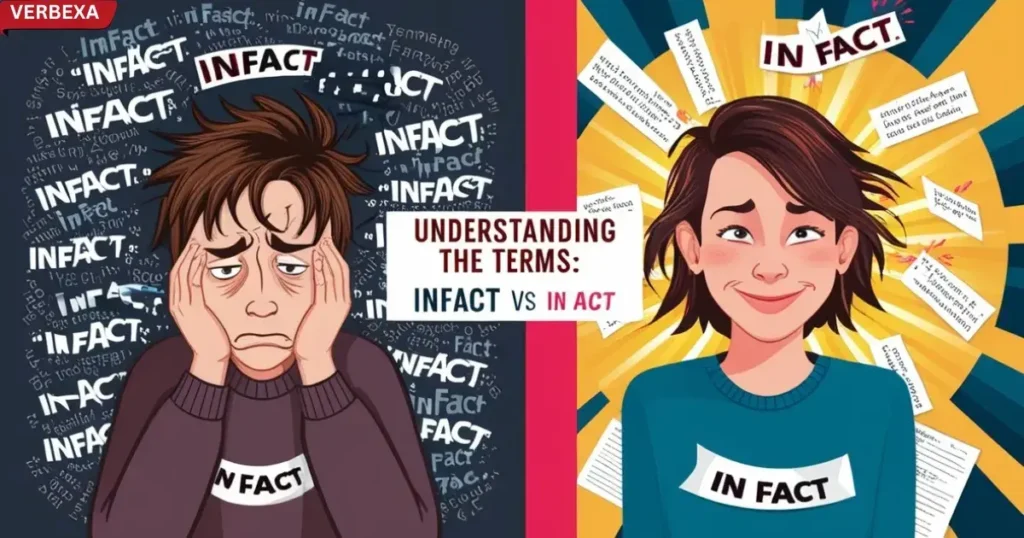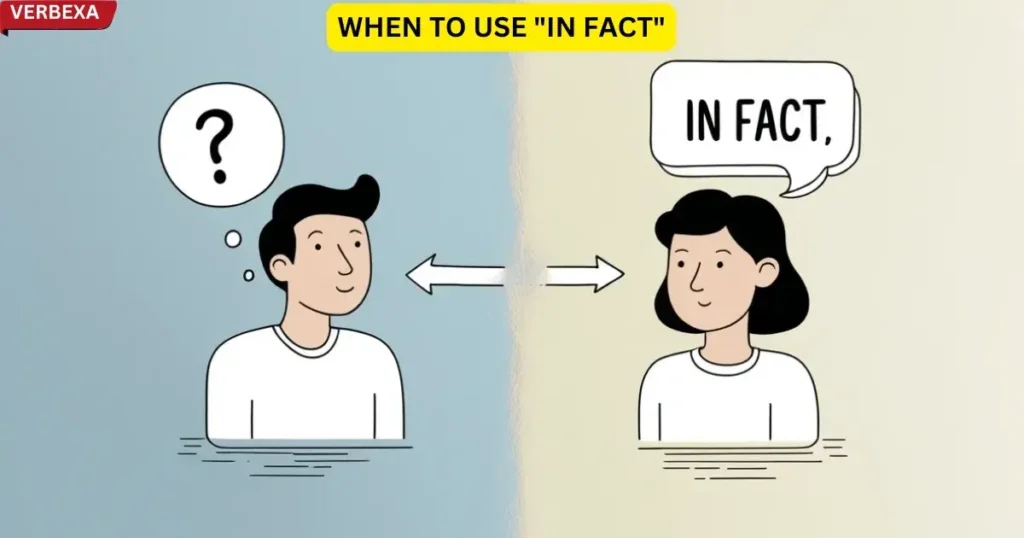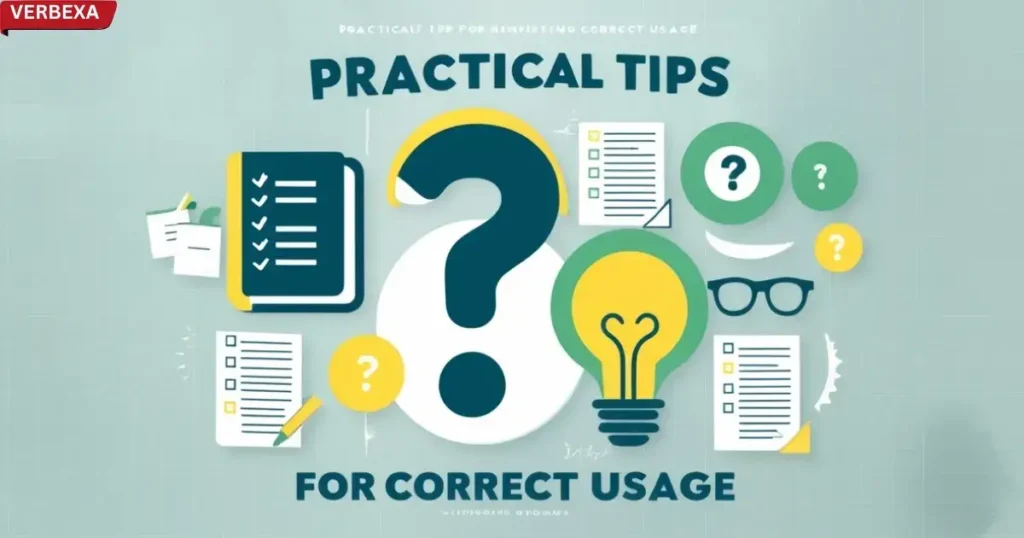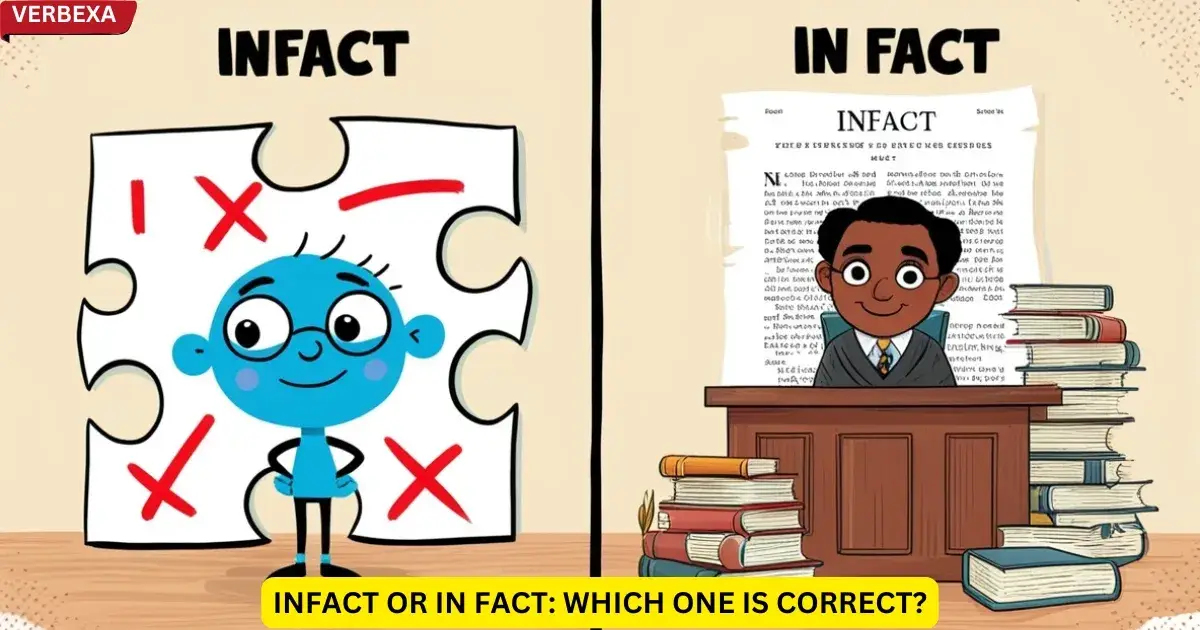Have you ever found yourself wondering whether to write infact or in fact? You’re not alone. This common linguistic confusion often leaves writers and speakers scratching their heads. The distinction between these terms is crucial for clear communication and professional writing.
We’ll dissect the differences, explore their correct usage, and provide practical examples to ensure you confidently choose between infact or in fact in your writing and speaking. Understanding this distinction is crucial for clear communication and avoiding the pitfalls of misspelling in English. Many mistakenly use “infact,” but is “infact one word”? The answer, as you’ll see, is no. Let’s explore the nuances of infact or in fact.
Understanding the Terms: Infact vs In Fact

Definition of Infact and Usage
Infact is not a legitimate word in the English language. It’s a common misspelling that occurs when writers accidentally blend the words “in” and “fact” into a single, nonexistent term. The question, “is infact one word?”, highlights the very mistake. This word error is a classic example of how language can be inadvertently manipulated.
For example: He said he was tired, infact, he fell asleep during the meeting.
Definition of In Fact and Usage
This is a two-word phrase functioning as a phrase that introduces additional information, corrects a misconception, or emphasizes a point. It acts as a conjunctive adverb, often signaling a shift in the direction of the argument or providing a more specific detail. In fact essentially means “actually” or “to be precise.”
For example: I thought the meeting would be short, but in fact, it lasted over three hours.
The in fact or infact question highlights the importance of proper grammatical structure and correct spelling in clear communication. Understanding how to choose between “infact or in fact” is not just about perfectionism, it’s about effective communication.
Synonyms for Emphasis
Synonyms for In Fact
- Truthfully
- Actually
- Indeed
- Certainly
- Genuinely
- Veritably
- Truly
- Absolutely
- Undoubtedly
- Remarkably
Comprehensive Comparison Table: In Fact vs Infact
| Feature | In Fact | Infact |
|---|---|---|
| Definition | Correct two-word phrase | Incorrect spelling |
| Grammatical Role | Conjunctive adverb, phrase | N/A |
| Correct Usage | Yes | No |
| Common Usage | Very common, emphasizes facts | Incorrect and should be avoided |
| Everyday Usage | Frequent in everyday speech and writing | Incorrect in all cases |
When to Use “In Fact”

In fact is particularly useful in several contexts:
- Academic writing
- Professional communications
- Formal presentations
- Clarifying complex ideas
- Providing additional context
Everyday Usage Examples
- Correct: “Many believe that cats are independent, but in fact, they crave attention.” This uses “in fact” correctly to emphasize a contrasting point.
- Incorrect: “Many believe that cats are independent, but infact, they crave attention.” This example illustrates how using “infact” creates a grammatical error.
- Correct: “I thought it would rain; in fact, the sun is shining.” This uses in fact to contrast prior expectations with current reality.
- Correct: “The report stated that profits were up; in fact, they increased by 20%.” In fact, here, is used to add additional specific information.
Using in fact correctly not only clarifies your meaning but also shows that you have a strong grasp of English.
Common Mistakes to Avoid
Writers often make these linguistic errors:
- Combining “in” and “fact” incorrectly
- Using infact in formal documents
- Misunderstanding the phrase’s purpose
Practical Tips for Correct Usage

To ensure you’re using the term correctly:
- Always separate “in” and “fact”
- Read your sentences aloud
- Use grammar checking tools
- Proofread carefully
The Significance of Precise Language
Correct language usage is more than grammatical pedantry. It’s about:
- Maintaining professional credibility
- Ensuring clear communication
- Demonstrating linguistic precision
FAQs
How do you spell infact?
The correct spelling is “in fact,” always two words. “Infact” is a common misspelling.
What is correct: in fact or infact?
“In fact” is the correct phrase; “infact” is not a word in the English language.
Is infact two words?
No, “infact” is not even a word; “in fact” is a two-word phrase.
How do you use infact?
You don’t use “infact”; it’s incorrect. Use “in fact” to add emphasis or clarify a statement.
How do you write in fact?
Write it as two separate words: “in fact.” Always write it this way for correct grammar.
Conclusion
Understanding the difference between infact or in fact might seem trivial, but it speaks volumes about your attention to detail. In fact, mastering these nuanced language distinctions can elevate your communication skills and professional image.
Remember, avoiding this typographical error is vital for clear and effective communication. The correct answer to the question, “is it infact or in fact?” is unequivocally “in fact.” This article is designed to support you in making the correct choice and refining your English writing and speaking skills. Choosing “in fact” over “infact” demonstrates your attention to detail and strengthens the impact of your communication. Therefore always opt for “in fact.”
Final Takeaway
In fact, your commitment to linguistic accuracy can set you apart in both written and verbal communication. Embrace precision, and watch your communication skills soar!

This author is a passionate linguist and grammar enthusiast, dedicated to helping individuals master the art of language. With years of experience in teaching and editing, she brings clarity and precision to every sentence. Tina’s mission is to empower writers of all levels to express themselves with confidence and excellence.

